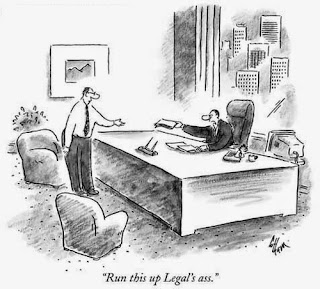Contrary to the cynicism that can pervade discussions of [mergers and acquisitions], many top level M & A advisors have a genuine concern about the integrity of large scale transactions and a desire for the fiduciaries involved to serve the interests they represent in a good faith and effective way. This is not to say that they do not seek to advance the interests of their clients in obtaining legitimate economic advantage, but they do want the game to be a fair one.
— Leo E. Strine, Jr., Chief Justice, Delaware Supreme Court 1,2,3
1 While I appreciate Chief Justice Strine’s sentiment and respect for the basic integrity and desire for fair play which does indeed hold sway among the large majority of professional advisor participants in M&A processes, I find his proposal that we make our lives—and those of our clients—before his and other benches easier by documenting in much greater detail the twists and turns of our recommendations and analyses in medias res of transactions to be both impractical and naive. Surely Chief Justice Strine, among all jurists, must appreciate the role accident, error, and chance play in almost every complex process such as a merger or acquisition and how, even when said twists and turns are faithfully and comprehensively memorialized the twin imps of imperfect memory and hostile interpretation can confuse and bedevil the faithful interpretation of the facts of the matter. I suspect Mr. Strine, being both professionally empowered and constitutionally predilected for the role of fact finder and detective, simply prefers a clearer trail of evidence to allow him to judge the facts of the case properly and render more equitable judgments. However, I also suspect virtually no internal or external investment bank counsel or deal lawyer of any kind will be remotely interested in providing more potential fuel for the fires of devious and aggressive plaintiffs’ counsel for the sole purpose of making Justice Strine’s and his colleagues on the bench’s jobs easier. After all, that is why they pay him the big bucks and solicit him to speak at ABA conferences: because his job is difficult. Plus, we never know when some bozo will relocate litigation jurisdiction away from the Halls of Justice and Light in Delaware to some one-horse hick town in Texas where the judges don’t even know how to read PowerPoint. I’ll go out on a limb and reckon his suggestion is not gonna happen anytime soon. It was a nice try, though.
2 This quote also reminds me of an excellent article by philosopher David Papineau, who wrote about the distinction which can be drawn between the rules of the game and the notion of fair play in both sport and politics. I think a similar analysis could be performed for the highly ritualized, rule bound competition which is mergers and acquisitions. Maybe if you’re nice to me and send me a fruit basket I’ll undertake such an explanation one day.
3 Does it count as a blog post if the chief substance of your remarks lies sequestered in footnotes? Does it count as a speech? Did Chief Justice Strine read each and every footnote as well when he delivered his speech? These are some of the mysteries which consume my restless nights.
© 2014 The Epicurean Dealmaker. All rights reserved.

